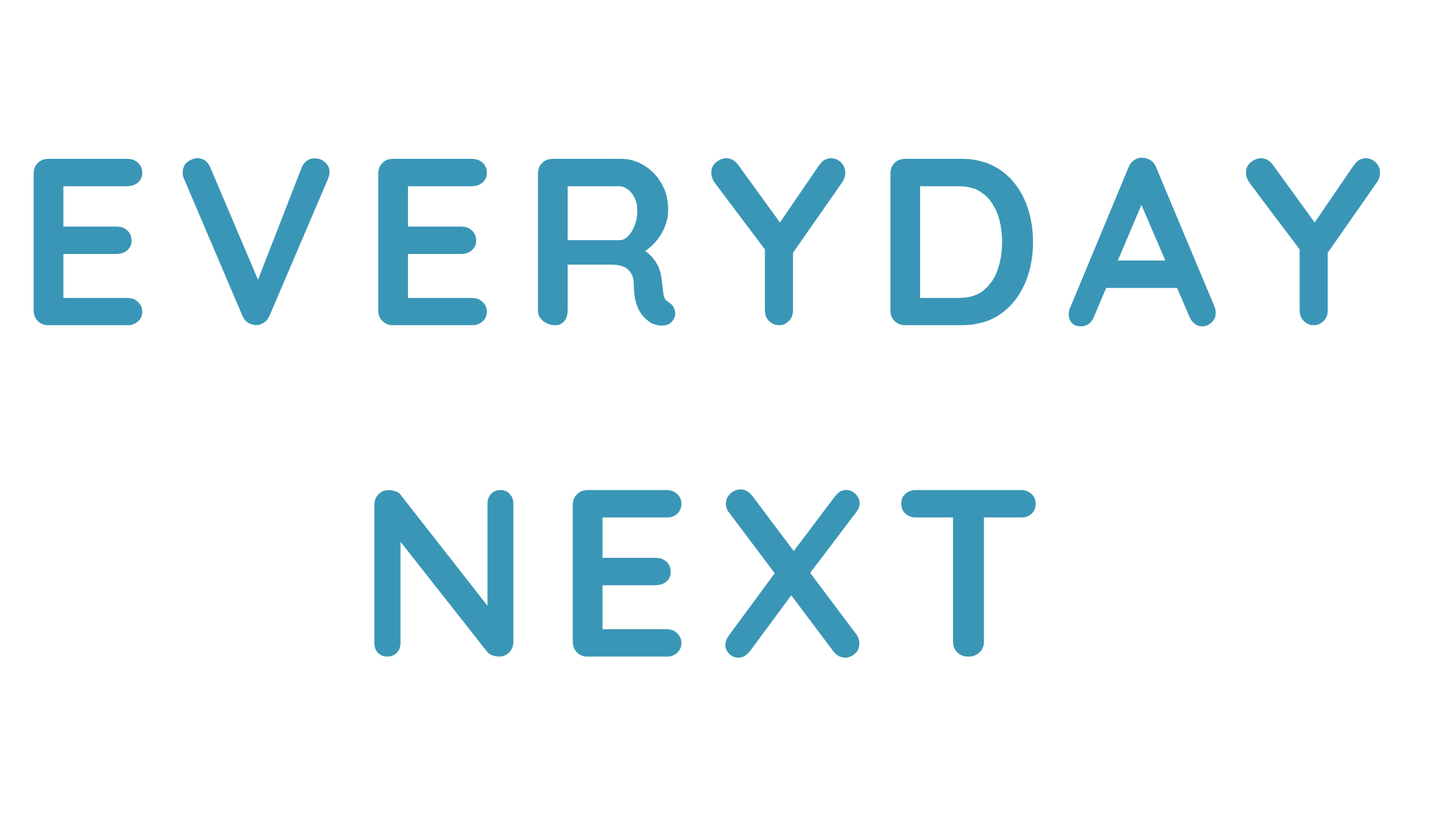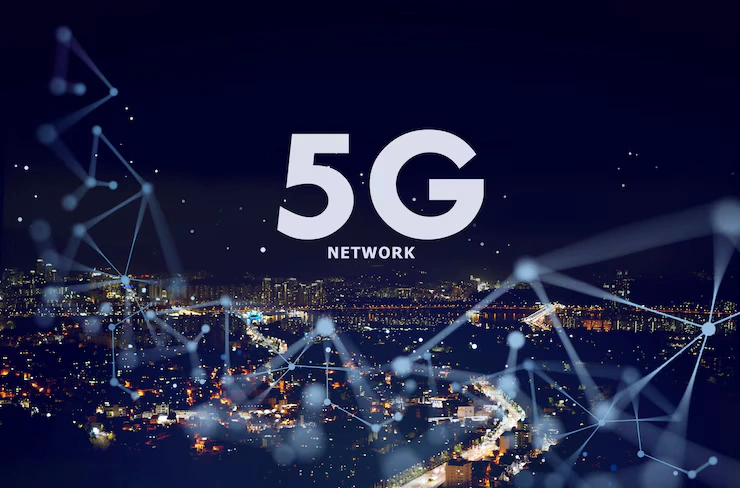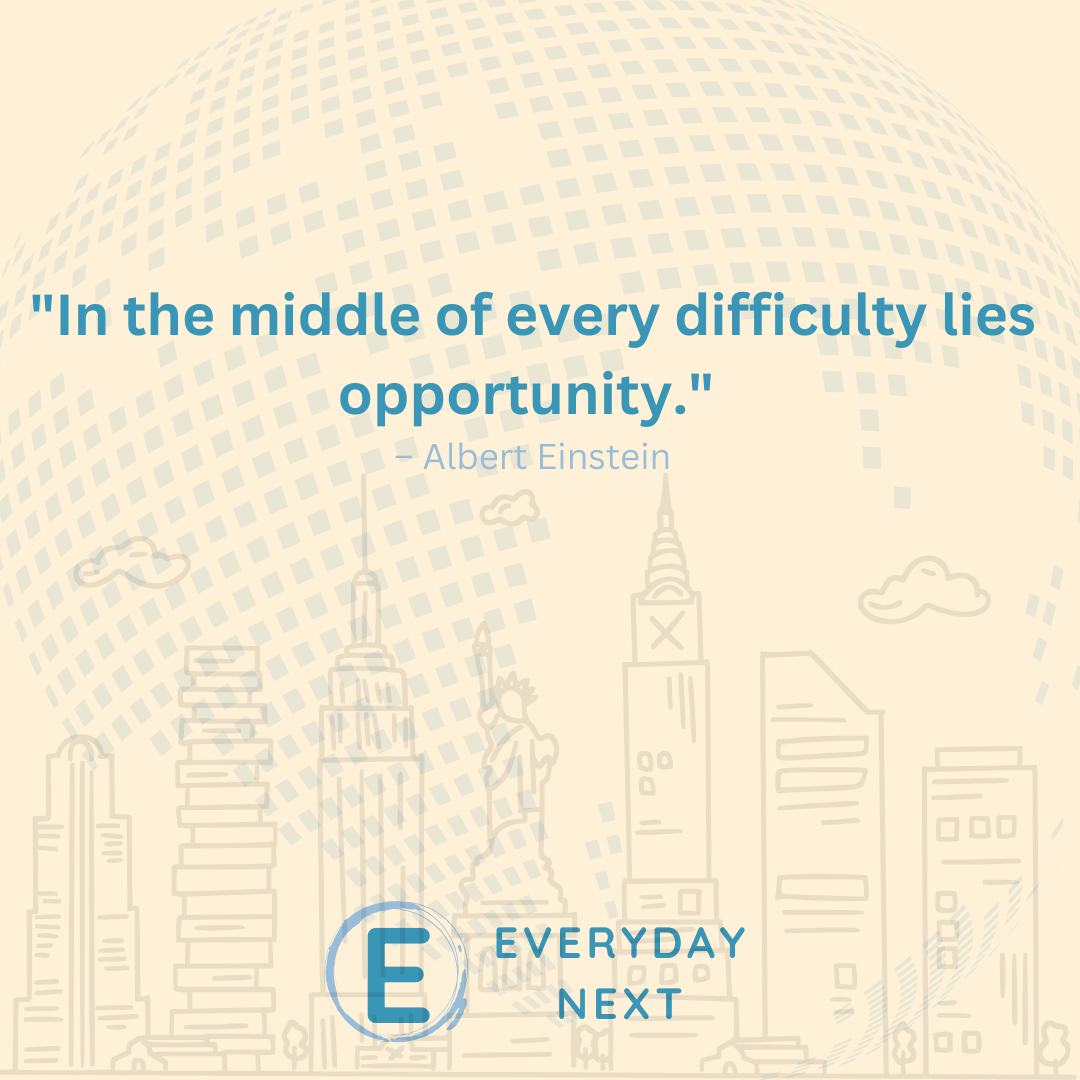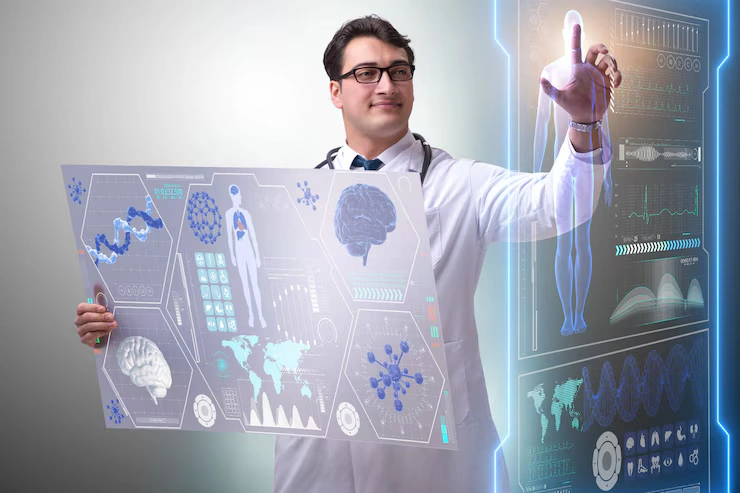
AI Transforms Healthcare: How “Healthcare AI” Is Saving Lives
The world of medicine is changing fast. In 2025, Healthcare AI is leading that change. From faster diagnoses to better treatments, technology is saving lives. Hospitals, clinics, and even small health centers now rely on smart tools powered by Healthcare AI. It helps doctors work faster and smarter. Patients get better care with fewer delays. This shift is not only exciting but also life-changing for millions. Let’s explore how Healthcare is transforming modern health systems.
Early Diagnosis with Healthcare AI
One of the biggest benefits of Healthcare AI is early detection. Diseases like cancer, diabetes, and heart issues can now be found much sooner. Smart machines read medical images like X-rays or MRIs and flag problems right away. Doctors used to spend hours looking at test results. Now, with Healthcare AI, these results come in minutes. That saves time, and lives. Faster results mean faster treatment, which is often the key to recovery. Hospitals around the world report higher success rates in treating diseases. All thanks to this smart technology that never sleeps or gets tired.
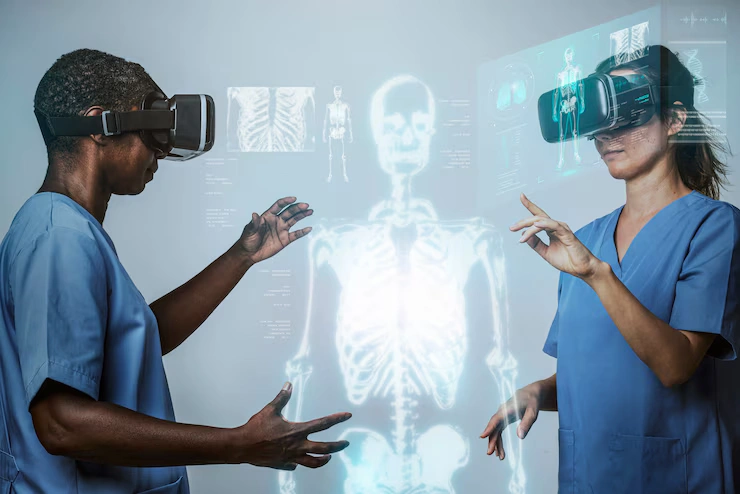
Key Benefits of Healthcare AI
Here are some top advantages of using Healthcare AI today:
- Faster diagnosis: AI spots problems faster than traditional methods
- Better accuracy: Machines reduce human error in reports
- Cost savings: Less time means lower medical costs
- More access: Remote areas now get smart healthcare tools
- Less paperwork: Doctors have more time for patients
- Continuous updates: AI learns and improves every day
These benefits show why doctors and hospitals are turning to Healthcare more than ever in 2025.
AI Robots and Virtual Nurses in Hospitals
Hospitals are Using AI-Powered robots and chat assistants. These tools check patient symptoms, provide reminders, and guide them on what to do next. It’s like having a nurse 24/7 at your side. In surgeries, AI robots help doctors perform complex operations with more control. They reduce the chance of mistakes. Patients also heal faster, as surgeries are more precise with less damage to the body. Even after leaving the hospital, patients can stay in touch with doctors using apps powered by Healthcare. This means better follow-up and fewer returns to the hospital.
Traditional vs Healthcare AI Systems
| Feature | Traditional Healthcare | With Healthcare AI |
| Diagnosis Time | Several hours or days | Few minutes |
| Human Error Risk | Higher | Much lower |
| Patient Monitoring | Manual | Automated and real-time |
| Data Access | Paper records | Cloud-based digital files |
| Doctor’s Time per Patient | Limited | More available |
| Reach in Remote Areas | Often unavailable | Widely accessible |
This table shows how Healthcare AI is improving care, especially in speed, access, and accuracy.
Healthcare AI in Daily Use
Here are common uses of Healthcare AI in 2025:
- Managing health data and patient files
- Predicting risks of heart attacks or strokes
- Chatbots for health questions
- Drug discovery and vaccine research
- Personalized treatment plans
- Remote health monitoring
With these daily tools, Healthcare is touching lives everywhere, from big hospitals to small clinics.
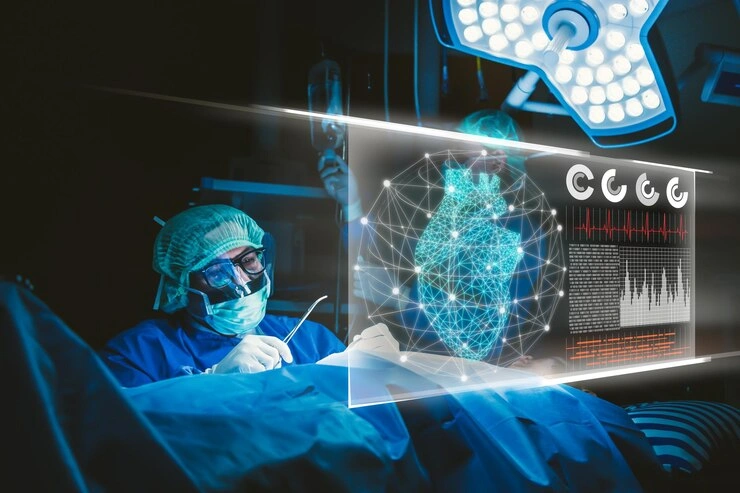
Innovations Enhancing Healthcare AI
In 2025, Healthcare AI is more than just smart tools. It’s part of everyday medical life. Tech companies are launching apps that track your heart, sleep, and even blood sugar in real time. These tools give quick alerts if something’s wrong. Doctors are also working with engineers to Make Better Machines. Many apps can now connect directly to doctors, so you don’t need to wait for an appointment. This real-time help improves trust and reduces hospital visits. AI tools are also helping researchers. They speed up drug development by testing thousands of combinations in hours instead of years. All this makes Healthcare AI the heart of modern medicine.
Struggles and Concerns in AI Healthcare
Though the benefits are many, there are also concerns. Healthcare AI can make mistakes if not trained well. Some systems still need human checks to avoid wrong results. Privacy is another big worry. Patients want to know their health data is safe. Also, many places don’t have fast internet or proper machines. In such areas, Healthcare can’t work well. So, while the future looks bright, there is still work to do. Governments, tech firms, and doctors need to work together for safer, wider use.
Global Expansion of Healthcare AI
In 2025, Healthcare AI is not just growing in rich nations. It’s spreading across the globe. Countries in Asia, Africa, and South America are investing in AI tools for better care. Local clinics now use smart apps to monitor diseases like malaria, tuberculosis, and COVID-19. Governments and health firms are joining hands to bring AI solutions to more people. Mobile Health Vans use Healthcare to scan patients in rural zones. In disaster zones, AI robots help doctors respond faster. These steps are bridging the gap between urban and rural health systems. This global growth shows how Healthcare is not just a luxury, it’s becoming a basic need in modern healthcare everywhere.

Conclusion
The rise of Healthcare AI in 2025 is changing how we treat, monitor, and prevent disease. From faster diagnoses to better patient care, this technology is making a big difference. It helps doctors save time, reduces errors, and brings modern care to more people. As new tools and systems grow, both public and private sectors must work together. With smart planning and global teamwork, Healthcare can solve many problems in today’s health systems. The goal is clear, use AI to save lives and build a healthier future for all. By trusting and improving Healthcare AI, we’re not just investing in machines, we’re investing in human lives.
FAQs
1. What is Healthcare AI?
Healthcare AI refers to smart systems that help doctors with tasks like diagnosis, treatment, and monitoring.
2. How is AI used in hospitals in 2025?
It helps with scanning reports, surgeries, virtual nurses, and data management.
3. Is Healthcare AI safe?
Mostly yes, but it needs human checks and strong data privacy.
4. Does AI replace doctors?
No. It supports doctors but doesn’t replace their skills or judgment.
5. Where is Healthcare AI most useful?
In diagnostics, patient care, drug research, and rural health support.
